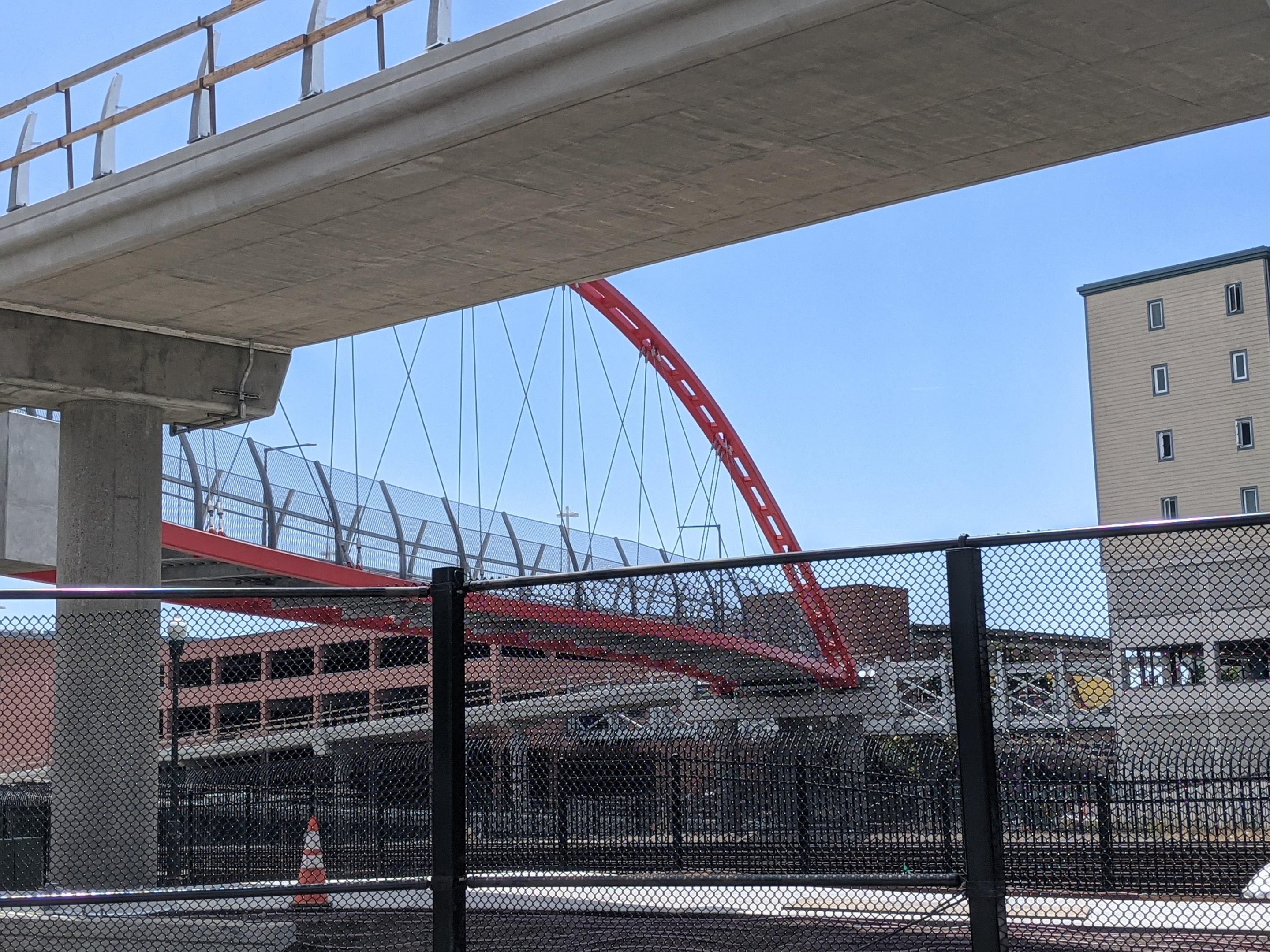Note: GJEL Accident Attorneys regularly sponsors coverage on Streetsblog San Francisco and Streetsblog California. Unless noted in the story, GJEL Accident Attorneys is not consulted for the content or editorial direction of the sponsored content.
Emeryville is building sustainable housing. It's building bike lanes. In the Bay Area it's already second only to San Francisco for the percentage of people who commute without a car.
To the people who run this small East Bay City, the key to this success and forward momentum is their governing philosophy. "It’s an 'and,' not a 'but' or an 'or,'” explained Mayor John Bauters during an interview with SPUR Tuesday afternoon about how Emeryville is showing the way. That means, for example, Emeryville doesn't have discussions about whether it should build market-rate housing or affordable housing. "We have a predictable development plan in our ordinances. Developers are interested because we’re not going to take you in a backroom or hand you over to multiple appeals to planning boards," he said. "Below Market Rate has to be 12-25 percent depending on how big the development is and it has to match our Regional Housing Needs Allocation ratio."
But there are no surprises. And "we understand the market will contribute more housing, so we leverage our bond money and put out money to build housing that we know is still under-met by the market," he said.
The city of 13,000 people voted for Measure C, a $50 million housing bond, in 2018. That means they let market-rate developers do their thing--with predictable requirements on what they have to build in terms of bike parking, percentages of below-market-rate, and remediation. But the city itself is building "permanent supportive housing projects and housing for low-income, unaccompanied seniors, and for foster care," said Bauters.
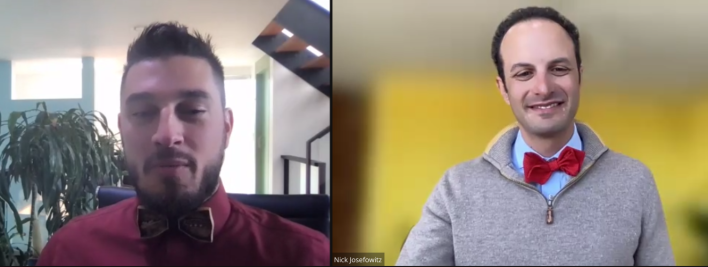
SPUR's Nick Josefowitz, who conducted the interview, asked how Bauters deals with angry people showing up to resist housing. But Bauters said that just doesn't happen very often. "I go out and do several town halls a month. It’s an opportunity for people to be regularly engaged. You talk to them about what’s going in there and it helps people start to see that housing development can be engineered to bring livability to the community,"
He said to some degree that's because of the authenticity of the Emeryville City Council. He said they're "not here to be career politicians. I’m not looking to say one thing to one group and another thing to another group to move up the ladder." Bauters said people sense that so even in areas where he disagrees with people, there's still a level of respect. "If people know you’re looking out for the city, they will understand."
Some of it also comes down to Emeryville's geography and history. It has evolved from an industrial to a more residential city, so it doesn't have much single-family housing and the anti-development fervor that often brings. Its proximity to San Francisco and the fact that it's Amtrak's hub for the Bay Area tends to attract people who are more open to living car-light or car-free. "I got an email from a couple that said they're retired and want to be car-free and wanted to convert their garage. They asked if Emeryville has any restrictions on building Accessory Dwelling Units," which the city doesn't, Bauters explained. "My favorite thing is when people ask 'can I get rid of this parking space?' And I’m like 'please and thank you.'"
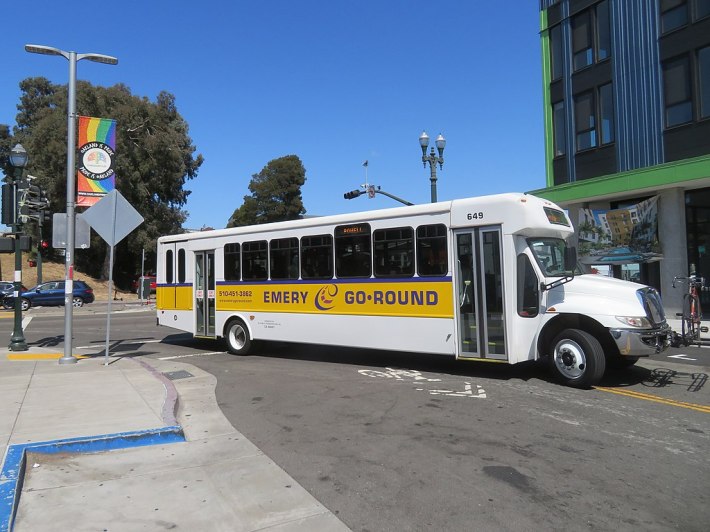
The city also has its free Emery Go-Round shuttle to BART plus regular Amtrak service to San Jose and Sacramento. "I think commuter rail and Amtrak service needs to receive more federal funding and to expand routes and frequencies." Bauters said he's heading to DC to help lobby for that.
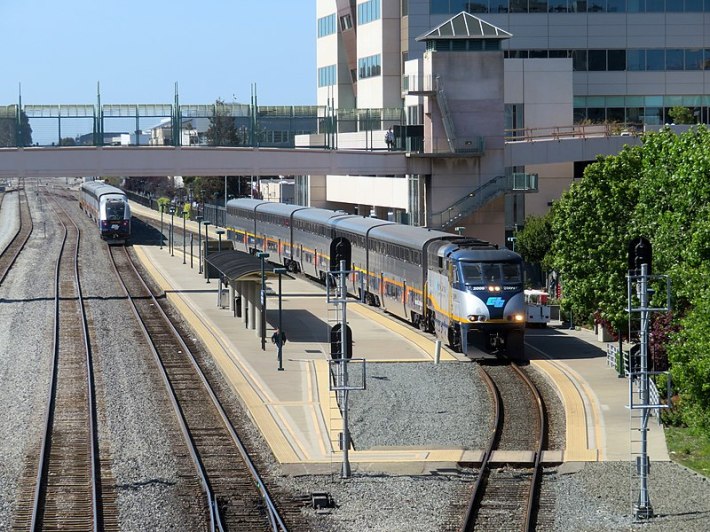
And as Streetsblog has followed, Emeryville is building out its bike network to help residents and visitors connect to Amtrak, shopping, and BART. Bauters stressed that the key to getting more people biking isn't to tell them how to get around, but to give them safe, viable options. "Cars are marketed as freedom, but they’re not," he said. "They cost us and they take joy and opportunity from us. People don’t choose alternatives because they don't feel safe." He said the city has to keep working on making sure cycling feels completely safe so even children can ride unaccompanied to school.
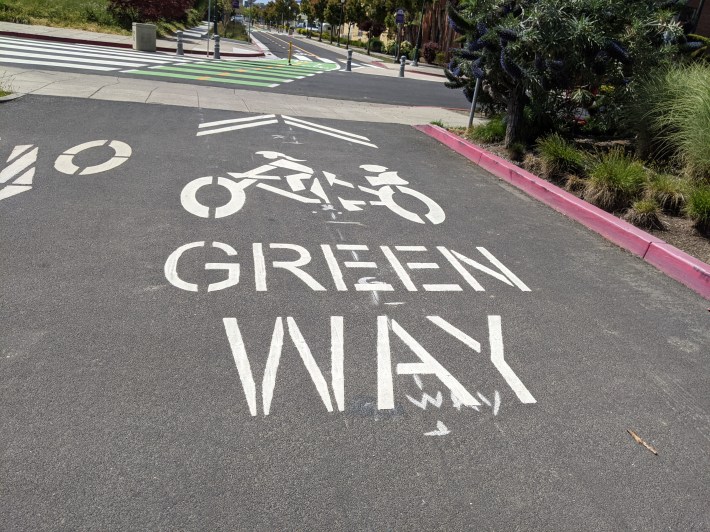
"We have to meaningfully fund transit and create active transportation spaces." He added that the "governor should set aside money to give everyone a tax rebate to buy an electric bike."
"I'm unapologetically in pursuit of zero-carbon emissions," said Bauters, adding that the human race has no choice. "If people don’t want to do it, they can elect someone who can lead them to their doom."
For more events like these, visit SPUR’s events page.
